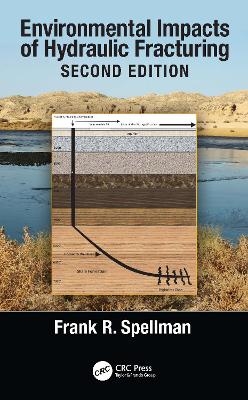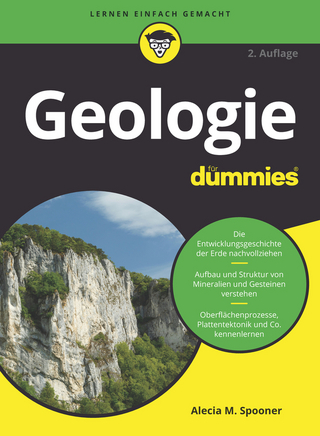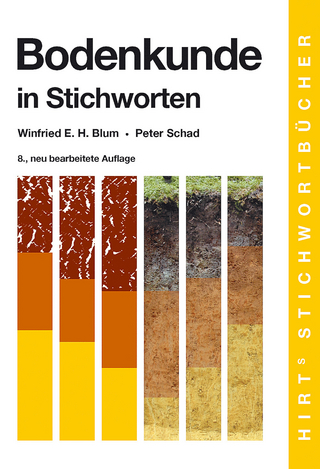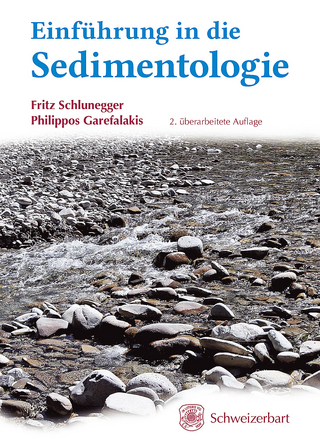
Environmental Impacts of Hydraulic Fracturing
CRC Press (Verlag)
978-1-032-62201-9 (ISBN)
Includes suggestions and recommendations on how to mitigate environmental damage caused by hydraulic fracturing.
Weighs the pros and cons of hydraulic fracturing.
Describes the benefits of hydraulic fracturing and its importance for potential energy independence.
Largely updated for this new, second edition.
Frank R. Spellman, CSP, CHMM, PhD, is a retired U.S. Naval Officer with 26 years active duty and also a retired full‑time adjunct assistant professor of environmental health at Old Dominion University, Norfolk, Virginia, and the author of more than 161 books covering topics ranging from a 15 volume homeland security series, several safety, industrial hygiene, stormwater management, air pollution and security manuals and also including concentrated animal feeding operations (CAFOs) to all areas of environmental science and occupational health and regulatory compliance. He has also authored 20 novels. Many of his texts are readily available online at Amazon.com and Barnes and Noble.com, and several have been adopted for classroom use at major universities throughout the United States, Canada, Europe, and Russia; two have been translated into Chinese, Japanese, Arabic, Korean, and Spanish for overseas markets. Dr. Spellman has been cited in more than 1,850 publications. He serves as a professional expert witness for three law groups and as an incident/accident investigator and security expert for the U.S. Department of Justice and a northern Virginia law firm. In addition, he consults on homeland security vulnerability assessments for critical infrastructures including water/wastewater facilities nationwide and conducts pre‑Occupational Safety and Health Administration (OSHA)/Environmental Protection Agency EPA audits throughout the country. Dr. Spellman receives frequent requests to co‑author with well‑recognized experts in several scientific fields; for example, he is a contributing author of the prestigious text The Engineering Handbook, 2nd ed. (CRC Press). Dr. Spellman lectures on wastewater treatment, water treatment, and homeland security and lectures on safety topics throughout the country and teaches water/wastewater operator/regulatory short courses at Virginia Tech (Blacksburg, Virginia). In 2011–2012, he traced and documented the ancient water distribution system at Machu Pichu, Peru, and surveyed several drinking water resources in Amazonia‑Coco, Ecuador. Dr. Spellman also studied and surveyed two separate potable water supplies in the Galapagos Islands; he also studied and researched and studied Darwin’s finches while in the Galapagos. He holds a BA in public administration; a BS in business management; an MBA, an MS, and a PhD in environmental engineering.
1. Introduction. 2. Shale Gas. 3. Shale Gas Geology. 4. Shale Gas Plays. 5. Shale Gas Sources. 6. Hydraulic Fracturing: The Process. 7. Laws and Regulations Affecting Shale Gas Development & Operations. 8. Chemicals Used in Hydraulic Fracturing. 9. Environmental Considerations. Glossary. Appendices. Index.
| Erscheinungsdatum | 21.08.2024 |
|---|---|
| Zusatzinfo | 47 Tables, black and white; 23 Line drawings, black and white; 2 Halftones, black and white; 25 Illustrations, black and white |
| Verlagsort | London |
| Sprache | englisch |
| Maße | 156 x 234 mm |
| Gewicht | 861 g |
| Themenwelt | Naturwissenschaften ► Geowissenschaften ► Geologie |
| Technik ► Bauwesen | |
| Technik ► Elektrotechnik / Energietechnik | |
| Technik ► Umwelttechnik / Biotechnologie | |
| ISBN-10 | 1-032-62201-6 / 1032622016 |
| ISBN-13 | 978-1-032-62201-9 / 9781032622019 |
| Zustand | Neuware |
| Haben Sie eine Frage zum Produkt? |
aus dem Bereich


